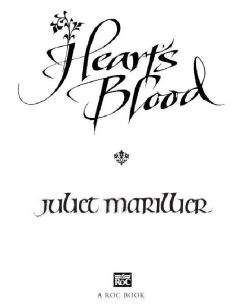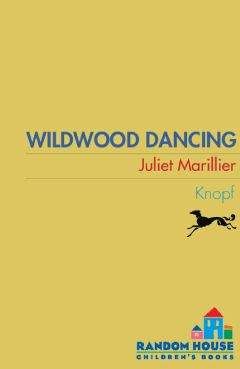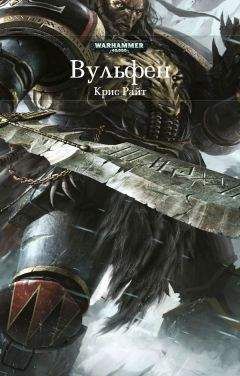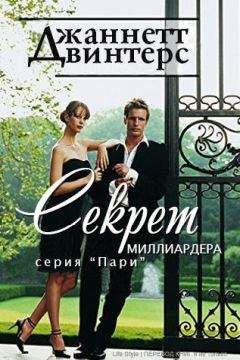Cybele's Secret - Juliet Marillier - Cybeles Secret
“One cannot argue with this logic.” Stoyan’s voice cracked, and although my heart had gone cold, I reached out, intending to take his hand. He drew it away. “You say, let us be together despite this, despite that. If a man truly loves, Paula, such a word as this does not enter his mind. He does not consider the obstacles, the restrictions, the reasons why his choice may be flawed or impractical. He gives no heed to what others may think. His heart has no room for that, for it is filled to the brim with the unutterable truth of his feelings.”
“But—” I blurted out, desperate to make him understand that I did love him and that if I hadn’t been so tired and nervous, I would have said it much better.
“Hear me out, Paula, please. I cannot say this twice over. As you have reminded me in such a timely fashion, your future is one of wealth and opportunity, of scholarship and achievement. You will move in circles far beyond the reach of a man like me. If we imagine things might be otherwise, we entertain a delusion born of the strange adventures we have undertaken together. Were we to seek something further, and I cannot pretend the idea has never entered my mind, we would soon find ourselves at war. You would seek from me an erudition and cleverness I have no capacity to offer, and you would become bitter that you had tied yourself to a man of such limitations. I would…Never mind that. By the time we return to Istanbul, you will look back with gratitude that I answered you thus, Paula. You inhabit one world, the same world as Duarte, with its privileges and its possibilities. I exist in another entirely.”
It felt as if he’d hit me. With that well-phrased speech, he had effectively severed the bond between us, and it was like cutting off my supply of fresh air. I sat there, miserable and silent, with Stoyan close enough to touch but separated from me as completely as if there were a wall between us.
Duarte strode forth from the dancing, a hand extended toward me, a smile softening his features. He was flushed from the activity and from the fire, which crackled high, lighting up the night. “One more dance, come on! You too, Stoyan. We must show these folk we appreciate their welcome. After this, we’re invited to go back to their village for some sleep. Tomorrow they’ll take us down to another anchorage. A fishing boat can ferry us around to the Esperança. Home’s in sight, my friends!”
I got to my feet. One thing was certain—I could not remain here with Stoyan after that speech, or I would break apart.
“Come on, Stoyan,” Duarte said, grabbing his hand and hauling him to his feet. “Unless that arrow you stopped for me has winged you too badly.” He turned to me. “I imagine our friend here didn’t give you the full story; he’s never keen to draw attention to his own exploits. If he hadn’t pushed me out of its path, that barb would have taken me right in the chest. So just when I’ve finally repaid my debt to Mustafa, I’ve acquired another.”
“There is no obligation,” Stoyan said in a voice that sounded gray and drained. “It was a battle; in a battle one protects one’s comrades. Must I dance?”
“We all must,” I said grimly, since the alternative was to sit about feeling utterly wretched until it was time to go. We owed it to Cybele, I thought, to honor her with celebration. Our personal feelings played no part in that.
So we danced, the three of us, I in the middle, my friends on either side, part of a big circle of folk all with hands on each other’s shoulders, working through a complicated sequence of repeated steps as the music got gradually faster and faster. The pipe shrilled, the drums pounded, the horns bellowed in turn and then together, blasting a wild fanfare into the night. Duarte managed an exhausted smile. To these folk, he was a hero, his debt of honor paid at last. But he had lost a good friend on the way. Stoyan was pale, his expression forbidding, his hands still stained with Murat’s blood. He, in his borrowed clothes, looked tidier than Duarte or I did. But all of us showed the signs of our ordeal, our eyes shadowed with weariness and shock, our hair tangled, our bodies battered and sore. Still we danced, heads held high, in tribute to the mountain people who had held on to faith and hope for so long.
The moon crossed the sky; the tree rustled in a light breeze. Sparks from the great fire rose into the night air. And while my feet trod the intricate patterns of the dance and my mouth formed a smile, inside I was aching with sadness. Stoyan’s words had been like nails driven into my heart. I had thought what we had was strong enough to defy custom and expectation, to leap barriers of distance and difference. He had thrown my stumbling arguments back in my face. Tonight, this dance, was the last time I would be able to touch his strong shoulder, to feel his warm presence by my side, to glance up and know he would be there. Until the music ended, I could pretend we did not have to say goodbye.
We left the next morning. The villagers gave us warm clothing and an escort down a precipitous track, and a fisherman ferried us back to the Esperança. Plague had not yet touched the mountain village, but the people knew it was not far away, and they did not linger.
The mood on the ship was somber, the loss of Pero weighing heavily on Duarte and on his crewmen. Arrangements were changed. Stoyan asked to be a full member of the crew on the way back, and Duarte accepted his offer. That meant Stoyan slept with the other men and Duarte reoccupied his cabin, putting me in Pero’s. I was sure Stoyan had done this less from a wish to be useful than from a need to avoid talking to me. On the rare occasions when we crossed paths, he greeted me with courteous formality, just as any other crewman might, though the others generally gave me a smile. My blundering attempt to tell him what I felt for him appeared to have destroyed not only the future we might have shared but also the close friendship we already had. And yet the more I thought about it, the more I recognized the depth of my feelings for him, feelings that had been creeping up on me long before our passage through the mountain had awoken me to their true nature. I was so wounded by his attitude that I spent most of the time in my cabin, brooding. I tried to make sense of everything that had happened.
I thought a lot about Irene and what she had done at the end. I went back over what I had observed of her relationship with Murat, the wordless understanding that had shown itself in everything from the pouring of a perfect cup of coffee to the instant deployment of a murderous weapon. I had seen, in that moment of terrible grief as she cradled her dying steward in her arms, that she loved him. It had been clear that she had never considered he might fall in her service and that, for a little at least, the loss of him had far outweighed the value of Cybele’s Gift. Had she realized, in that moment, that she did not want to go on without him? Perhaps; she could have escaped with us, and she had chosen to stay behind. As for the nature of their love, that I would never know, and maybe it did not matter. Maybe it was enough to be aware that Irene had possessed the capacity for such feelings.
Stoyan’s behavior, to which he adhered with stern resolve throughout the voyage, meant I was thrown into Duarte’s company. He, at least, seemed happy to spend time with me. I heard about his family. They were wealthy; the Esperança was not the only vessel they owned. He told me about his early rebellion against his father’s expectations, his travels as a lowly crewman on various ships, how he had risen to be captain of his own vessel—not the Esperança, which had been a later acquisition, but a more modest one-master. He had indeed supplemented his income with acts of piracy in those early years and had garnered a reputation as ruthless and successful. The long debt of honor to Mustafa had gradually changed him. He said that he no longer employed the kind of tactics he once had, and I believed him, for our journey had convinced me he was a good man at heart. Indeed, he was now a wealthy man in his own right, with no need to engage in underhand practices. He was, in fact, the respectable trader his father had always wanted him to be—he had just taken a little longer to get there than his father would have liked.
I asked him what he would do now that his mission was over, and he said he would go home for a while. The crew was overdue for time off. And Pero’s wife must be told that she was a widow. She would be provided for, as would the fatherless children. There was a code amongst seafarers that required this.
It seemed to me that this account was not quite complete, that there was something on Duarte’s mind he was not telling me. I saw it in the quality of his smile and in the guarded eyes. I did not press it. We were all tired. But it seemed to me Duarte was somewhat adrift now, as a man might well be when his energies have gone for so long toward a single purpose and that purpose suddenly ceases to exist. He needed time to come to terms with the change, to work out what it meant. We read poetry together, drank wine, sometimes sat in companionable silence. It was pleasant, but it could not soothe the ache in my chest that never went away.
We did not encounter the red-sailed ship. Perhaps it was still moored in that little bay, waiting for Irene and Murat to return. Without her orders, I did not suppose the crew would bother pursuing us. I wondered if I would have to report her death and Murat’s to the authorities in Istanbul. I was much relieved when Duarte told me he would take care of this. He would, he said, give a version of our story that could not lead the authorities to Mustafa’s village or expose Irene’s secret to the world. If there was evidence of the cult in her house, something that would reveal the truth to her husband, there was very little we could do about it.
And so fifteen days after our departure, we sailed back into the Golden Horn. The moment the Esperança was tied up at the dock, Duarte got a boy to run up to the Genoese han to advise my father that I was back safe and well and would be there shortly. Stoyan took my little bundle, which contained Tati’s embroidery and the clothing I had been wearing, an Anatolian countrywoman’s outfit given to me in the mountain village to replace my shredded sailor’s clothes. I wore the Greek-style dress that Irene had given me the last time I was in her hamam, the day when Stoyan burst in on us. I could not believe that was less than three weeks ago.
Duarte gave me a book—the Odyssey—and kissed me on the lips at the top of the gangway to a chorus of whistles and amiable catcalls from the crew. As Stoyan and I walked down, their voices rang out behind us: Paula, de brancura singela… I was close to tears and annoyed with myself for being so upset. We had all known it could not last forever.
Father did not utter a single word of reproach but simply gathered me in his arms and thanked God that I was safe. I told him the bare bones of the story but omitted quite a bit of detail, knowing how upset he would be to hear of the physical hardships and danger Tati and I had faced. He listened quietly, as he had six years ago when we had been obliged to explain to him that his eldest daughter had gone to the Other Kingdom and that he would never see her again. When I was finished, Father asked a couple of questions: Was Tati looking well? Had I been injured at all? And lastly, was I happy with the final fate of Cybele’s Gift? If so, Father said, he would draw a line under that matter and we would simply move on. I assured him that what we had done was for the best, even though it meant his voyage had been a commercial failure. It was not an easy conversation.
Stoyan was silent and tense, though when Father embraced him and thanked him for bringing me back safely, he thawed a little. We would be leaving on the Stea de Mare in a few days’ time, and there was much still to be done. If we had not returned when we had, Father would have stayed in Istanbul and kept on searching for us. Because of that uncertainty, he had not finalized the accounts or completed packing the goods we had purchased to take back to Transylvania. He would need me to help with the former and Stoyan for the latter.
I was so tired I could hardly stay on my feet. I greeted Giacomo and Maria and thanked them for their help. They had not only nursed my father back to health but had also put a great deal of effort into assisting him with the search. Father scrutinized me as I swayed and yawned, then told me the accounts could wait until tomorrow. I went to bed and slept for fourteen hours. I got up, washed, and ate breakfast, then went back to bed, promising Father I would do the work in the afternoon. He and Stoyan were busy in the downstairs chamber we were using for our goods, packing up silks.
I did not wake until the midday call to prayer rang out over the Genoese mahalle. I found Father out on the gallery drinking tea. He had sent Stoyan to the docks with a cartload of items to be stowed on the ship.
“I’ve had a visitor,” Father said. “Sit down, Paula. You still look exhausted.” He stood and gestured to the tea vendor down in the courtyard.
“A visitor?” I queried, subsiding onto a chair. “Who?”
“Your friend Duarte Aguiar. He paid me a formal call.”
“I’m sorry I missed him.” It was unsurprising. Duarte would have felt obliged to give some explanation, I imagined, for what must appear to the outside world as a kind of abduction. “When is Stoyan coming back, Father?”
“In time for supper, I imagine.” Father was looking at me quizzically. “Why do you ask?”
“No special reason.” I couldn’t bear that we should leave with things the way they were between Stoyan and me. But he had made it clear that he didn’t want to entertain my suggestion. On all sorts of levels, this was perfectly logical. We were completely different. Our homes were many miles apart. I was a scholarly girl of prosperous merchant stock, he an uneducated farmer from a remote village. He had sworn to find his brother and take the news to his mother, and I was on my way back home. It could be years before I traveled this way again. I might never come. What chance of success could a partnership between us possibly have?
“Mmm-hmm,” murmured Father. “Have you two argued? I’ve noticed quite a frosty atmosphere between you. And Stoyan seems…” He hesitated, searching for the right word. “He seems disturbed.”
“We had a disagreement. Don’t trouble yourself with it.” Oh, how I wished one of my sisters were here, Jena in particular, so I could unburden my sadness and confusion to her and seek some practical advice. This wasn’t something I could tell Father.
After I’d been scowling into the middle distance for a while, Father said, “Aren’t you going to ask me what Aguiar wanted?”
“Wanted? Wasn’t he here to apologize to you?”
The tea vendor’s boy had come up with a laden tray. I helped myself to a glass and sipped gratefully.
“He asked for your hand in marriage.” Father sounded mildly amused as he delivered this thunderbolt.
“He…what?”
“Made a formal proposal of marriage, accompanied by all the information a father expects at such a time. It sounds as if the fellow is quite wealthy, Paula. And the family is well thought of by the rulers of that country, if Aguiar is to be believed. All this, of course, weighed against his dubious personal reputation. He spoke highly of you. You’ve clearly made an impression.”




